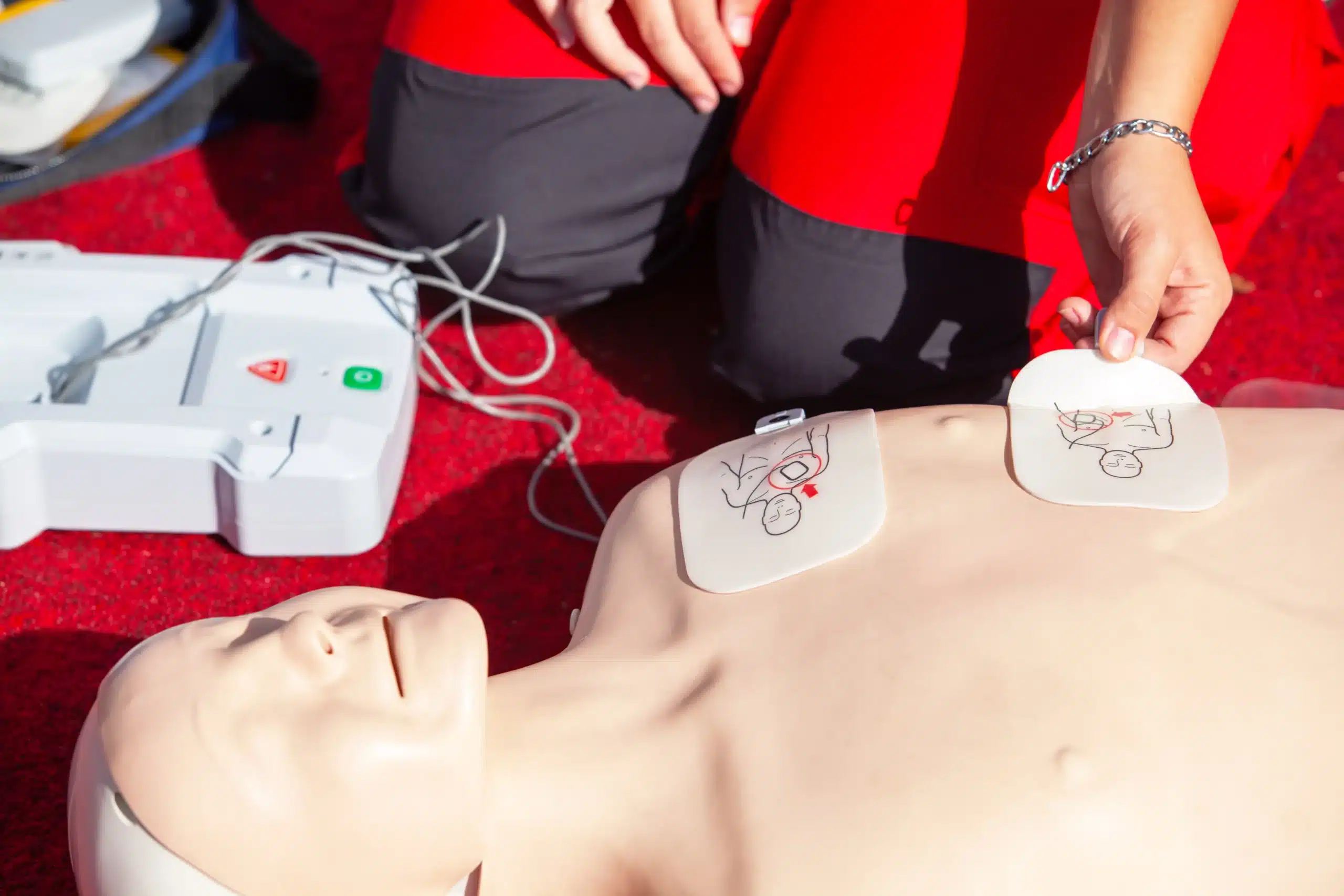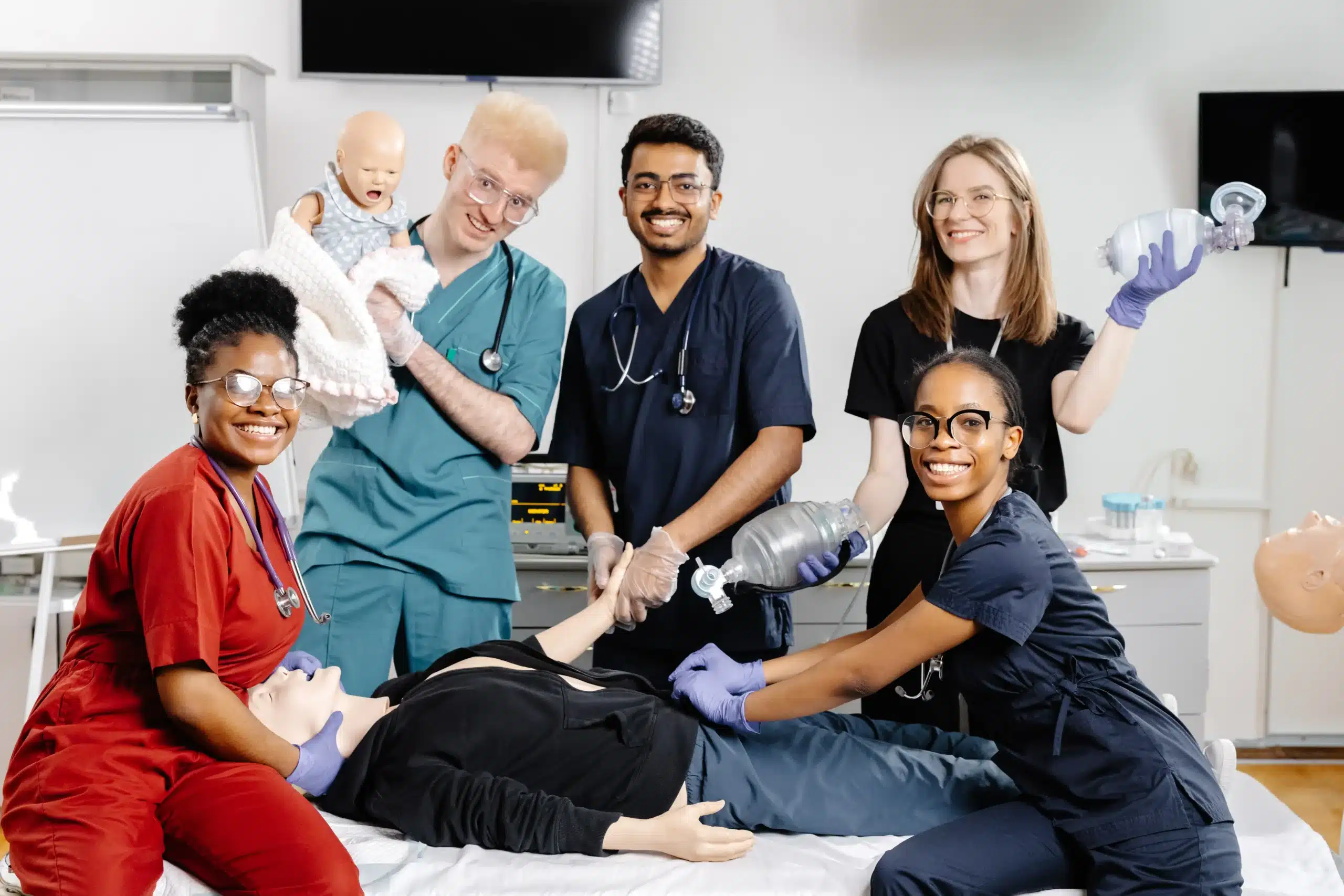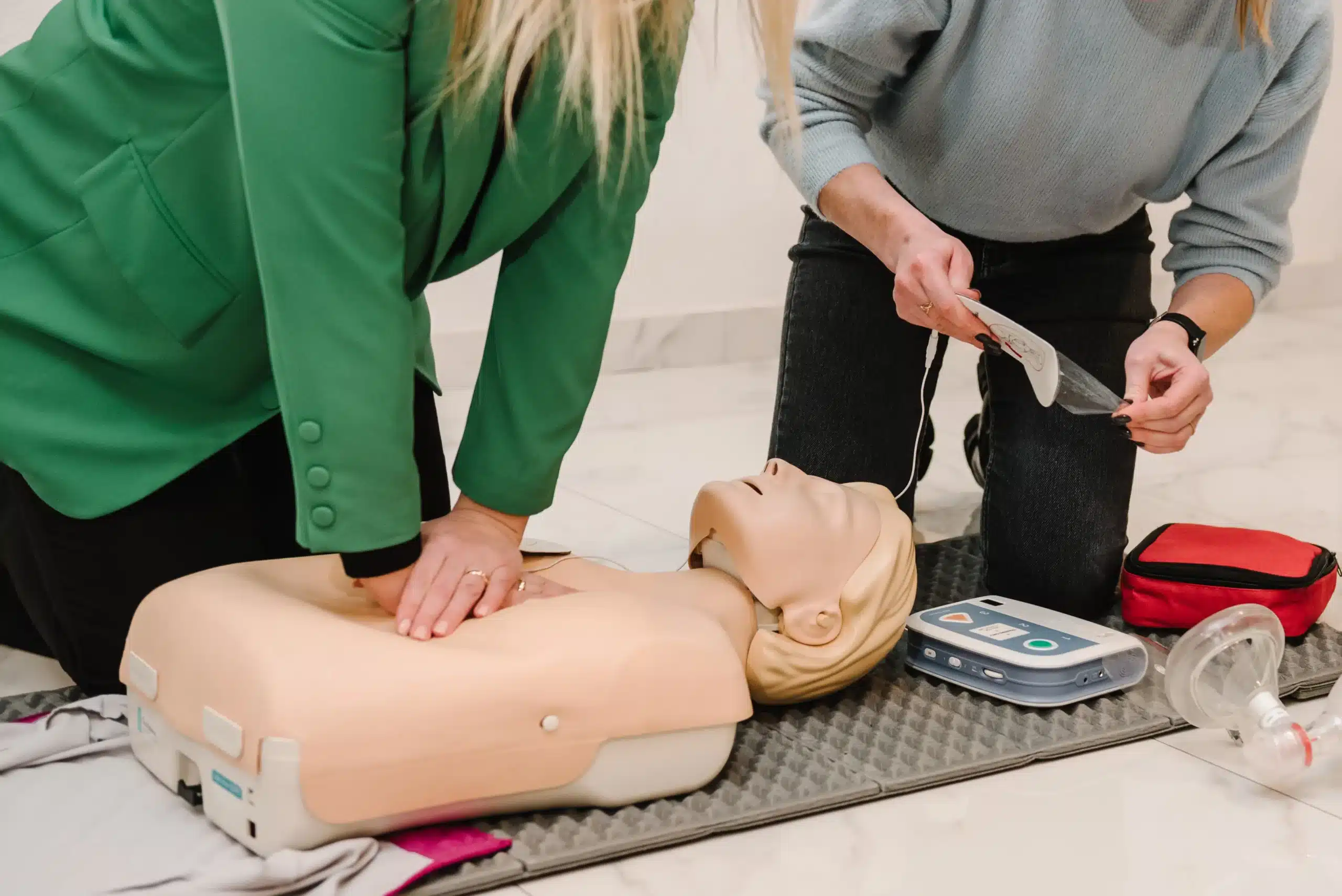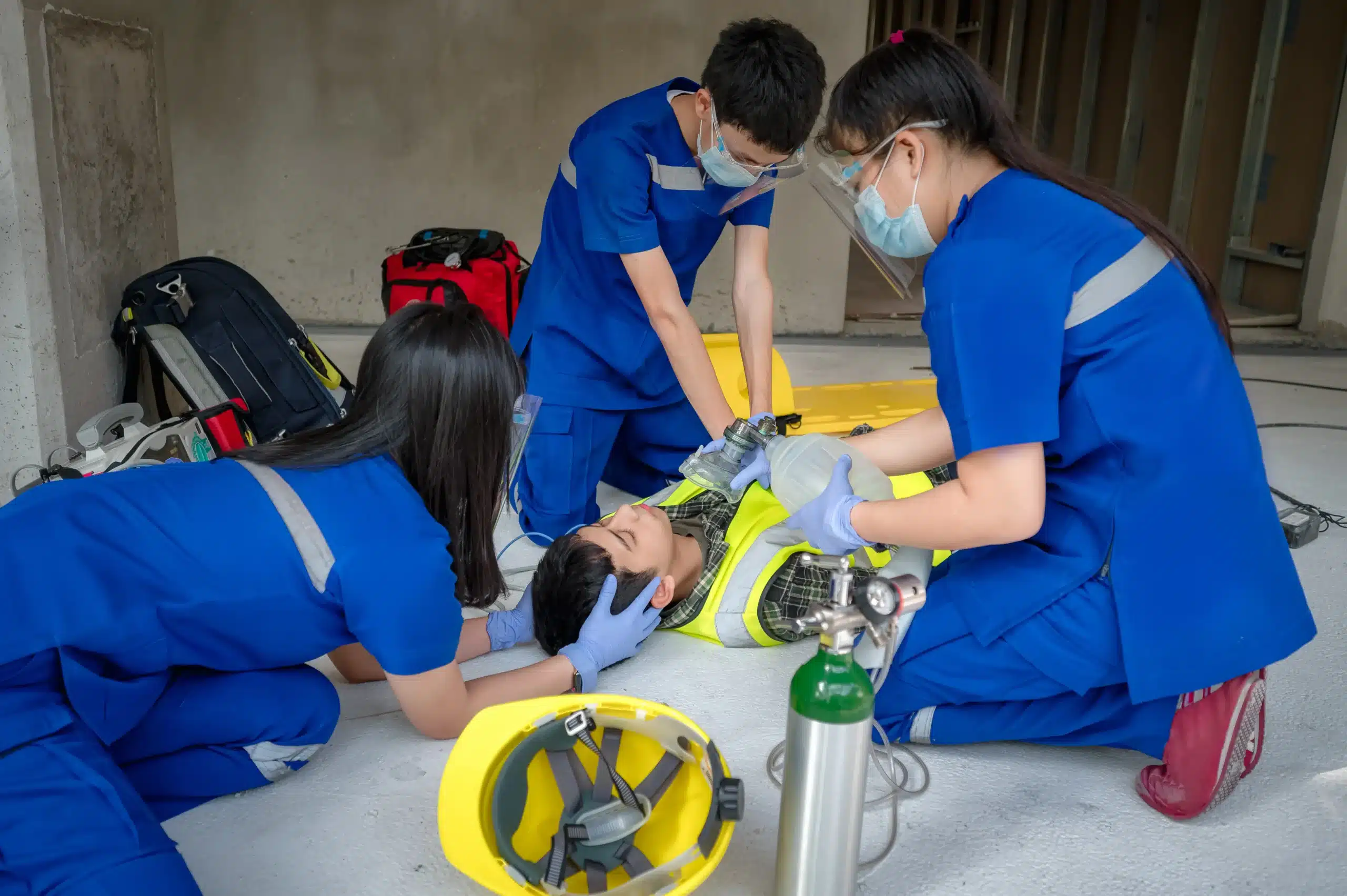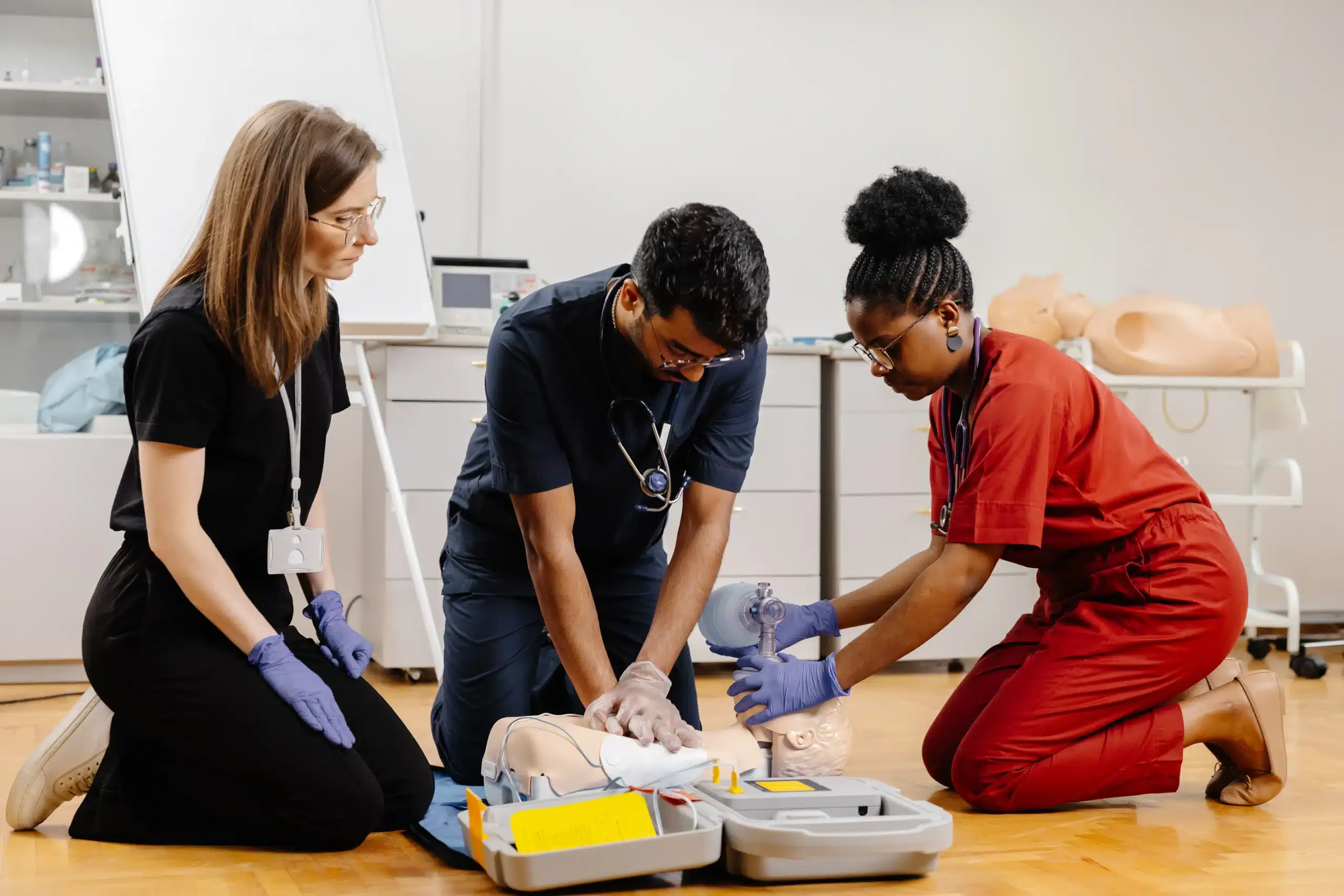Life is unpredictable, and emergencies can happen anytime, anywhere. Being equipped with CPR skills can make a world of difference. If you’re in Antioch and looking for a convenient way to learn these essential skills, online CPR classes in Antioch might be the perfect solution. They offer the flexibility to study at your own pace, combined with the crucial hands-on practice needed for real-life situations. This article will guide you through everything you need to know about online CPR classes in Antioch, from understanding the different course types and certification options to finding reputable providers and preparing for your skills assessment. We’ll also discuss the importance of staying current with your certification and provide valuable resources to support your learning journey.
Key Takeaways
- Online CPR training blends flexibility and hands-on learning: Combine online coursework with in-person skills testing to accommodate your schedule while mastering essential techniques. Consider programs like RQI for expedited certification.
- Research providers and choose the right course: Compare offerings from various training centers like Safety Training Seminars, CPR Training Center, and Bay Area CPR. Select the course type (BLS, ACLS, PALS, First Aid) that aligns with your needs and ensure the certification is recognized by your employer.
- Focus on quality and value in your CPR training: Prioritize AHA-certified courses taught by experienced instructors. Evaluate pricing, explore available discounts (group rates, package deals), and consider the resources offered to enhance your learning. Remember to maintain your certification through renewal courses and continuing education.
What are Online CPR Classes in Antioch?
Online CPR classes in Antioch offer a flexible way to learn life-saving skills. These courses usually blend online learning with in-person skills testing. This lets you study the material at your own speed before demonstrating your skills hands-on. This blended learning style accommodates busy schedules while ensuring you’re prepared for real-life emergencies. Several organizations in Antioch provide this hybrid approach, including the CPR Training Center, which offers American Heart Association (AHA) certified courses like Basic Life Support (BLS), Advanced Cardiovascular Life Support (ACLS), and Pediatric Advanced Life Support (PALS). You can finish the online portion and then schedule your skills test at your convenience. Another efficient option, especially if you need your certification quickly, is the Resuscitation Quality Improvement (RQI) program, often available through providers like Antioch CPR Classes. RQI streamlines the process, allowing you to complete training and testing sometimes in a single day. Online CPR classes in Antioch aim to provide comprehensive training that fits your needs, equipping you with the knowledge and skills to respond confidently in emergencies.
Find Top Providers and Course Offerings
Finding the right CPR certification course requires research. Here’s a look at some providers offering CPR classes in Antioch and the surrounding areas:
Safety Training Seminars
Safety Training Seminars offers a range of American Heart Association (AHA) certified courses, including CPR, BLS, ACLS, PALS, and First Aid. They serve Antioch, Brentwood, and Concord, California, making training accessible for residents in these areas. Check out their website for a complete list of AHA-aligned courses.
CPR Training Center
The CPR Training Center, an AHA-authorized training center with 28 years of experience, offers various courses, including CPR, BLS, ACLS, and PALS. Experienced instructors lead their training programs. Learn more about the CPR Training Center and their available courses.
Bay Area CPR
Bay Area CPR provides AHA-certified CPR, BLS, ACLS, and PALS courses in Antioch. They also offer first-aid training and on-site training, a convenient option for groups.
American Heart Association
The American Heart Association (AHA) offers BLS CPR classes in Antioch, equipping people with essential skills for emergencies. The AHA designs courses for both healthcare providers and the general public. Find an AHA course near you.
Red Cross
The Red Cross is a well-known provider of CPR training. Their classes teach essential life-saving skills and are designed for accessibility and effectiveness. Locate Red Cross CPR classes in your area.
Explore Course Types and Certification Details
Choosing the right CPR class is important, so let’s break down the different types of courses and certifications available in Brentwood. Whether you’re a healthcare provider, a childcare professional, or simply someone who wants to be prepared for emergencies, there’s a course designed for you. We offer classes in over 60 cities, and our Brentwood location serves Antioch, Brentwood, and Concord.
Basic Life Support (BLS)
BLS certification gives you the skills to respond to life-threatening emergencies, including cardiac arrest. You’ll learn how to perform CPR, use an AED, and relieve choking. BLS certification is a good foundation for anyone, and it’s often required for healthcare providers, first responders, and other professionals.
Advanced Cardiovascular Life Support (ACLS)
ACLS certification builds upon the skills learned in BLS and is designed for healthcare professionals. It covers advanced techniques for managing cardiovascular emergencies, including stroke and cardiac arrest. ACLS courses often involve simulations and team-based scenarios to give you practical experience. Our program uses the latest AHA guidelines and provides the tools you need to confidently manage these critical situations.
Pediatric Advanced Life Support (PALS)
PALS certification focuses on the specific needs of infants and children in medical emergencies. If you’re a healthcare provider who works with young patients, PALS training is essential. You’ll learn how to assess and manage pediatric respiratory emergencies, cardiac arrest, and other critical situations. Check out our PALS courses offered through the American Heart Association. For those needing Neonatal Resuscitation Program certification, we also offer the American Academy of Pediatrics NRP Certification. Our experienced instructors create a supportive learning environment.
First Aid and AED Training
First Aid and AED training teaches you how to respond to a wide range of medical emergencies, from minor injuries to more serious situations. Learning how to use an AED can significantly increase the chances of survival for someone experiencing sudden cardiac arrest. Consider pairing First Aid training with your CPR certification for a well-rounded skillset. Our comprehensive program covers everything from wound care to recognizing the signs of a stroke.
Check Certification Validity and Recognition
Before signing up for any CPR class, make sure the certification is recognized by your employer or licensing board. The American Heart Association (AHA) is a widely recognized and respected organization that offers high-quality CPR and first aid training. Verify that the course you choose meets AHA standards and will be accepted in your professional field. For those looking for convenient and efficient certification renewal, our unique RQI program helps medical professionals maintain their credentials with the support of our dedicated customer service team. You can find more information about CPR training and certification in our Northern California CPR Directory. We also offer discounts for group classes, so be sure to ask about those options.
Learn About the Online Learning Experience
Online CPR classes offer a convenient way to learn lifesaving skills, but it’s important to understand what the experience entails. This section covers key aspects of online CPR training, from course structure to instructor support.
Review Course Structure and Interactive Elements
Online CPR courses typically blend interactive modules, videos, and quizzes to teach essential concepts and techniques. Providers like CPR Training Center offer online components for BLS skill checks and ACLS renewal, allowing healthcare providers to refresh their knowledge efficiently. These courses often adhere to American Heart Association guidelines, ensuring you receive high-quality instruction. Look for courses that break down complex procedures into easy-to-understand steps and offer opportunities for self-assessment.
Get Hands-on Practice
While the online portion covers theory and demonstrations, CPR certification requires a hands-on skills test. This usually involves an in-person session where you demonstrate your skills on a manikin. Bay Area CPR notes the use of voice-activated manikins for skills testing, providing immediate feedback. Although an instructor might not be present during the test itself, support is typically available by phone if you have questions.
Enjoy Flexibility and Easy Scheduling
One of the biggest advantages of online CPR classes is the flexibility. Antioch CPR Classes offers classes daily, from 8 am to 10 pm, seven days a week. This availability makes it easier to fit training into your schedule. Online learning allows you to complete the coursework at your own pace.
Access Instructor Support and Resources
Even with online learning, access to instructor support is crucial. Reputable providers, like Antioch CPR Classes, prioritize customer service, with representatives available daily, including weekends. Look for courses that offer clear communication channels, such as email or phone support. Access to additional resources, like practice guides, can also enhance your learning experience.
Compare Pricing and Value
When choosing an online CPR class, understanding pricing and what you get for your money is essential. CPR class costs vary based on the provider, the type of certification (like PALS), and the course format. While cost is a factor, remember that the value of this life-saving skill is immense. A slightly higher price might come with benefits like more comprehensive materials or greater scheduling flexibility. Choosing an AHA-certified course ensures your training meets nationally recognized standards, which can be important for employers.
Understand Price Differences
Different organizations and training centers offer CPR certification. Compare pricing from several providers in your area, including Safety Training Seminars, to get a sense of the going rate. Prices can differ based on whether you choose an in-person or online class. Also, check if the quoted price includes everything—study materials, certification fees, and any other associated costs.
Find Available Discounts and Promotions
Many CPR training providers offer discounts, especially for students, groups, or returning customers. Look for special promotions or deals. For example, Safety Training Seminars offers group discounts, which can significantly lower the per-person cost. Check if your employer, school, or any organizations you’re affiliated with have partnerships that offer discounted rates. A little research can often uncover ways to save.
Consider Group Rates and Package Deals
If you’re training with friends, family, or coworkers, explore group rates. Many providers offer discounted pricing for groups signing up together. Some training centers offer package deals that combine multiple certifications, such as CPR and First Aid, at a reduced overall price. This can be a cost-effective way to gain multiple qualifications at once. If you anticipate needing more advanced certifications like ACLS or NRP in the future, inquire about package options that might include those courses.
Verify Quality Assurance and Accreditation
Before you sign up for any online CPR class, confirming its quality and legitimacy is crucial. This protects you and ensures your certification is valuable. Here’s what to look for:
Meet American Heart Association Standards
The gold standard for CPR training is American Heart Association (AHA) certification. AHA-certified courses adhere to the latest scientific guidelines and are widely accepted. Many providers, like the CPR Training Center in Antioch, are AHA-authorized training centers, adding another layer of assurance. This means their courses are taught by healthcare providers and meet AHA standards. Look for providers offering AHA-certified courses to ensure your credentials are nationally recognized.
Evaluate Instructor Qualifications
Beyond AHA certification, look into the instructors’ qualifications. Are they experienced healthcare professionals with a strong teaching background? A knowledgeable and engaging instructor can significantly impact your learning. Check the training provider’s website for instructor bios or testimonials to understand their expertise.
Confirm Employer Recognition of Certifications
Finally, ensure your chosen certification will be recognized by potential employers or licensing boards. An AHA-certified CPR course aligns with nationally recognized guidelines, giving employers confidence in your skills. If you have specific requirements for your job or profession, double-check with your employer or the relevant regulatory body. Choosing a reputable provider and verifying these details upfront will save you time and potential headaches.
Hear from Past Students
Choosing the right CPR class is a big decision. Hearing from others in your community can give you the confidence you need. Students in Antioch often share how valuable CPR training is, especially those with family histories of heart conditions. Being prepared for a cardiac emergency is crucial for everyone, and many feel empowered after completing a course. Others appreciate how BLS CPR classes in Antioch cater to various people, from healthcare providers to those with no medical background. The overall takeaway? CPR and first-aid training in Antioch equips individuals with the skills to confidently handle emergencies.
Read Testimonials
Looking for more information? Reading reviews and testimonials can offer valuable insights. Safety Training Seminars, for example, is a well-known provider in Antioch, offering American Heart Association-certified courses. Checking online reviews on sites like Yelp can give you a better sense of the quality of instruction and the overall student experience.
Address Common Misconceptions
It’s important to address some common misunderstandings about CPR training. While online CPR training offers flexibility, it’s not a substitute for in-person, hands-on learning. Practical experience is key to mastering these life-saving skills. Also, even if you’ve taken a CPR course before, refresher courses are essential. Guidelines and best practices are updated regularly, so staying current is vital. Finally, anyone can learn CPR. CPR training is designed for everyone, empowering anyone to respond effectively during emergencies.
Select the Right Online CPR Class
Choosing the right online CPR class is crucial for effective learning and successful certification. Consider these factors to make an informed decision:
Match Courses to Your Needs
First, identify the specific CPR certification you need. Are you a healthcare provider requiring PALS certification for your job, a childcare provider needing EMSA Child Care Health & Safety training, or someone wanting to learn CPR for personal knowledge? Safety Training Seminars offers a range of American Heart Association (AHA) certified courses—CPR, BLS, ACLS, PALS, and First Aid—right here in Antioch. This variety ensures you can find the precise training that aligns with your personal or professional goals. If you’re unsure which course is right for you, reach out to one of our training centers for guidance.
Balance Cost, Quality, and Convenience
Finding a balance between cost, quality, and convenience is key. CPR certification costs vary depending on the course type and provider. Explore options that fit your budget without compromising the quality of instruction. Safety Training Seminars offers a low price guarantee, making it a great option for budget-conscious learners. Consider the convenience of online learning, which allows you to study at your own pace. Online options, often combined with in-person skills assessments, offer flexibility for busy professionals and individuals with demanding schedules. If you’re learning with a group, ask about discounts for group classes.
Prepare for Your Skills Assessment
While the online portion of the course provides essential knowledge, the in-person skills assessment is where you demonstrate your practical abilities. Before your skills test, review any available online resources, practice guides, or videos provided by your training center. Adequate preparation will build your confidence and increase your chances of success. Understand the assessment format. Some centers use voice-activated mannequins for the skills test, allowing for independent practice and evaluation. Contact your instructor or the training center if you have any questions about the assessment process. They are there to support you and ensure you’re fully prepared.
Keep Your CPR Certification Current
Understand the Renewal Process
Staying current with your CPR skills is crucial for providing effective aid in emergencies. Most certifications, including those from the American Heart Association, are valid for two years. Knowing when your certification expires is the first step. Mark the date on your calendar and set reminders a few months in advance so you aren’t caught off guard. The renewal process is straightforward, often involving a refresher course that covers the latest guidelines and techniques. This ensures you’re always prepared to respond confidently and correctly. Check with your certifying organization or a local training center like Safety Training Seminars for specific renewal requirements. They offer a range of courses, including CPR and First Aid, to help you stay up-to-date.
Explore Continuing Education Opportunities
Beyond renewing your basic certification, consider expanding your skill set. Continuing education courses can provide advanced training in areas like Pediatric Advanced Life Support (PALS) for healthcare providers or the EMSA Child Care Health & Safety program for childcare professionals. These specialized certifications can be invaluable for anyone working with infants and children. Even if specialized training isn’t required, staying informed about the latest advancements in CPR can enhance your overall preparedness. Look for workshops, online resources, or advanced courses offered by reputable organizations like the American Heart Association. Continuing education demonstrates your commitment to providing the best possible care and can boost your confidence in emergency situations. Consider exploring group discounts if you’re looking to train with colleagues or friends. You can also find a comprehensive Northern CA CPR directory for more resources and training options.
Access Resources for Online CPR Training Success
Online CPR training offers a wealth of resources to help you succeed, from flexible scheduling to interactive learning tools. Understanding these resources can make your learning experience smoother and more effective.
One of the biggest advantages of online CPR training is the flexibility. You can learn at your own pace and fit the coursework around your busy schedule. Many providers, like CPR Training Center in Antioch, offer a blended learning approach, combining online theory with in-person skills assessments. This ensures comprehensive training and the opportunity to demonstrate your skills effectively.
Online CPR classes often provide various learning materials, including instructional videos, practice quizzes, and downloadable resources. These materials reinforce key concepts and improve information retention. Access to these resources can significantly improve your understanding of CPR techniques. Learn more about the resources available in online CPR courses.
For those choosing online courses, scheduling a skills check with a certified instructor is essential. This hands-on component allows you to practice and receive feedback in a controlled environment. Antioch CPR Classes offers this option, building confidence for real-life situations.
A supportive learning environment is also key. Many online CPR training platforms include forums or chat features to connect with instructors and other students. This creates a sense of community and provides a space for questions and clarification. Consider checking for group discounts, which can also foster a supportive learning environment. Completing your online CPR course often leads to certification, a valuable asset recognized by employers and organizations, whether you are a healthcare professional or want to be prepared for emergencies. Find a course and get certified.
Related Articles
- BLS Certification in Antioch: A Complete Guide
- Online CPR Classes in Brentwood: A Complete Guide
- CPR Classes in Concord: Your Complete Guide – Brentwood CPR Classes
- AHA ACLS Classes in Brentwood, CA – Brentwood CPR Classes
- CPR Training in Concord: Find the Right Course for You – Brentwood CPR Classes
Frequently Asked Questions
What’s the difference between online and in-person CPR classes? Online CPR classes offer more flexibility, allowing you to complete the coursework at your own pace. However, certification always requires an in-person skills test with a certified instructor. In-person classes combine the coursework and skills test in a single session. Both formats provide the knowledge and skills needed to respond to emergencies effectively.
How do I choose the right CPR class for me? Consider your specific needs and goals. Are you a healthcare professional, a childcare provider, or someone seeking personal knowledge? Different certifications, such as BLS, ACLS, PALS, and First Aid, cater to various professions and skill levels. Also, think about your learning style and schedule. Online classes offer flexibility, while in-person classes provide a more structured learning environment. Finally, compare pricing and ensure the certification is recognized by your employer or licensing board.
How much do CPR classes cost? CPR class costs vary depending on the provider, the type of certification (BLS, ACLS, PALS, etc.), and the course format (online or in-person). Many providers offer discounts for groups, students, or returning customers. It’s always a good idea to compare prices from different providers and inquire about any available discounts.
How long is a CPR certification valid, and how do I renew it? Most CPR certifications are valid for two years. Renewal typically involves completing a refresher course that covers updated guidelines and techniques. Check with your certifying organization or training provider for specific renewal requirements. Set reminders to avoid letting your certification lapse.
What if I have more questions? Contact a local training provider like Safety Training Seminars. They can answer your specific questions about course offerings, certification requirements, and any other concerns you may have. Don’t hesitate to reach out – they’re there to help you find the right training for your needs.


